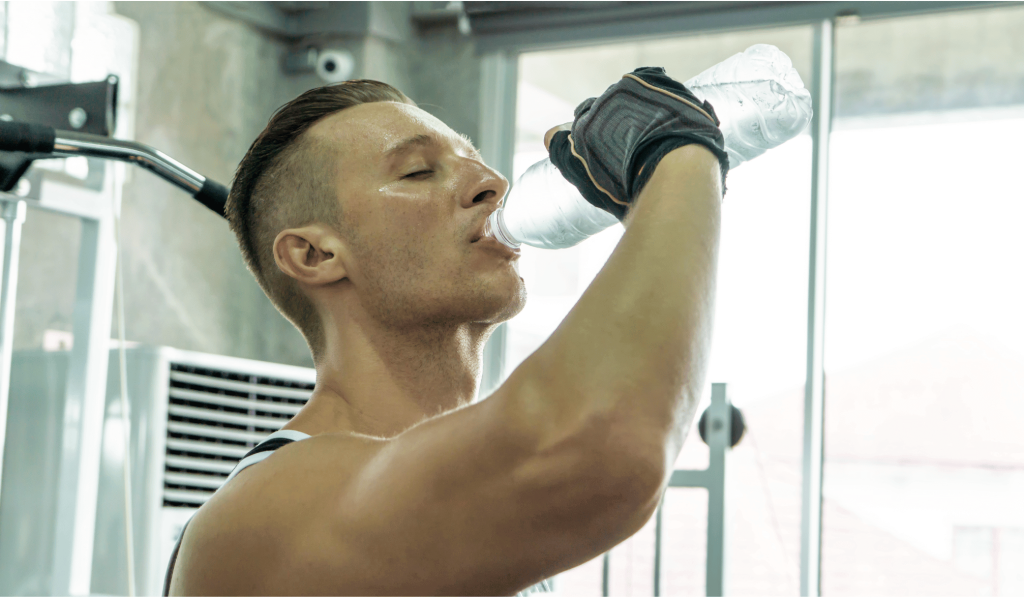You’re here because you’ve experienced it firsthand: the sweat trickling down your forehead as you power through another set. You’re already familiar with the benefits of creatine—increased strength, enhanced muscle recovery, and improved exercise performance.
But you’ve noticed something else—a potential uptick in your sweat rate. So, is it true? Does creatine make you sweat more?
This article delves into the science and practical implications of this observation, offering actionable insights for those who want to understand their body’s response to creatine supplementation better.
So, Does Creatine Make You Sweat?
Let’s cut to the chase: Creatine doesn’t directly make you sweat more.
The scientific consensus points to creatine’s role in enhancing your ability to perform high-intensity workouts. More intense workouts can naturally lead to increased sweating.
So, while creatine isn’t the direct cause, it’s a contributing factor to the sweat you’re experiencing.
Related article: Does Creatine Make You Sleepy?
Factors That Contribute to Increased Sweating While on Creatine
Exercise Intensity and Duration

Creatine is renowned for its ability to fuel short bursts of high-intensity activity. This is where the connection to sweating comes in. The more intense your workout, the higher your body’s metabolic rate and, consequently, the more you sweat.
- Metabolic Rate: Creatine increases phosphocreatine stores in your muscles, allowing for quicker ATP (energy) production. This enables you to perform high-intensity activities at a higher capacity.
- Duration: Creatine also allows for more sustained periods of high-intensity exercise. Longer workouts can naturally result in more sweat.
Individual Variability
While creatine doesn’t directly cause increased sweating, the extent to which you notice changes can vary based on a few factors:
- Adaptation Period: When you first start taking creatine, your body goes through an adaptation phase. During this time, you might notice changes in sweat rate as your body adjusts to the increased energy output during workouts.
- Type of Exercise: Different exercises have different sweat rates. If creatine enables you to perform high-intensity exercises you couldn’t do before, you may notice an increase in sweating simply because of the change in exercise type.
What Should You Do If You’re Sweating More on Creatine?
Hydration Strategies

Staying hydrated is paramount, especially when you’re sweating more due to increased physical activity. Aim for at least 3 to 4 liters of water per day when supplementing with creatine, particularly on workout days.
Signs of dehydration like dark urine, dry mouth, and fatigue are indicators that you need to increase your water intake.
You may also like: How to Dissolve Creatine: Methods You Should Try
Consult a Healthcare Provider
If you’re concerned about the increased sweating and its potential implications, it may be prudent to consult a healthcare provider.
They can offer personalized advice tailored to your medical history and current symptoms, ensuring you’re taking the most appropriate course of action.
Common Myths Debunked
When it comes to creatine and sweating, there’s no shortage of myths and misconceptions.
Let’s set the record straight on some of the most common ones.
Creatine and Dehydration Concerns

While it’s a common misconception that creatine causes dehydration, scientific evidence does not support this claim.
However, it’s worth noting that creatine supplementation often leads to more intense workouts, which can result in increased sweating.
Consequently, you may find yourself needing to consume more water to stay adequately hydrated.
Read: Is Creatine Natty? The Final Verdict
More Sweat Means More Fat Loss
Some people think that sweating more while taking creatine means they’re burning more fat.
However, sweat is primarily a cooling mechanism for the body and is not an indicator of how many calories or how much fat you’re burning.
Creatine Increases Body Temperature

Another misconception is that creatine raises your body temperature, causing you to sweat more.
While creatine can increase your capacity for high-intensity workouts, which may raise your body temperature, the compound itself does not inherently increase body temperature.
Conclusion
Creatine’s role in enhancing workout intensity can lead to increased sweating, but it’s not a direct cause. Awareness and proper hydration are key.
We hope this article has shed light on some of the myths and facts surrounding creatine use.
If you’ve gained new insights or have further questions, we encourage you to share your thoughts in the comments below.
Related article: Does Creatine Make You Hungry?

